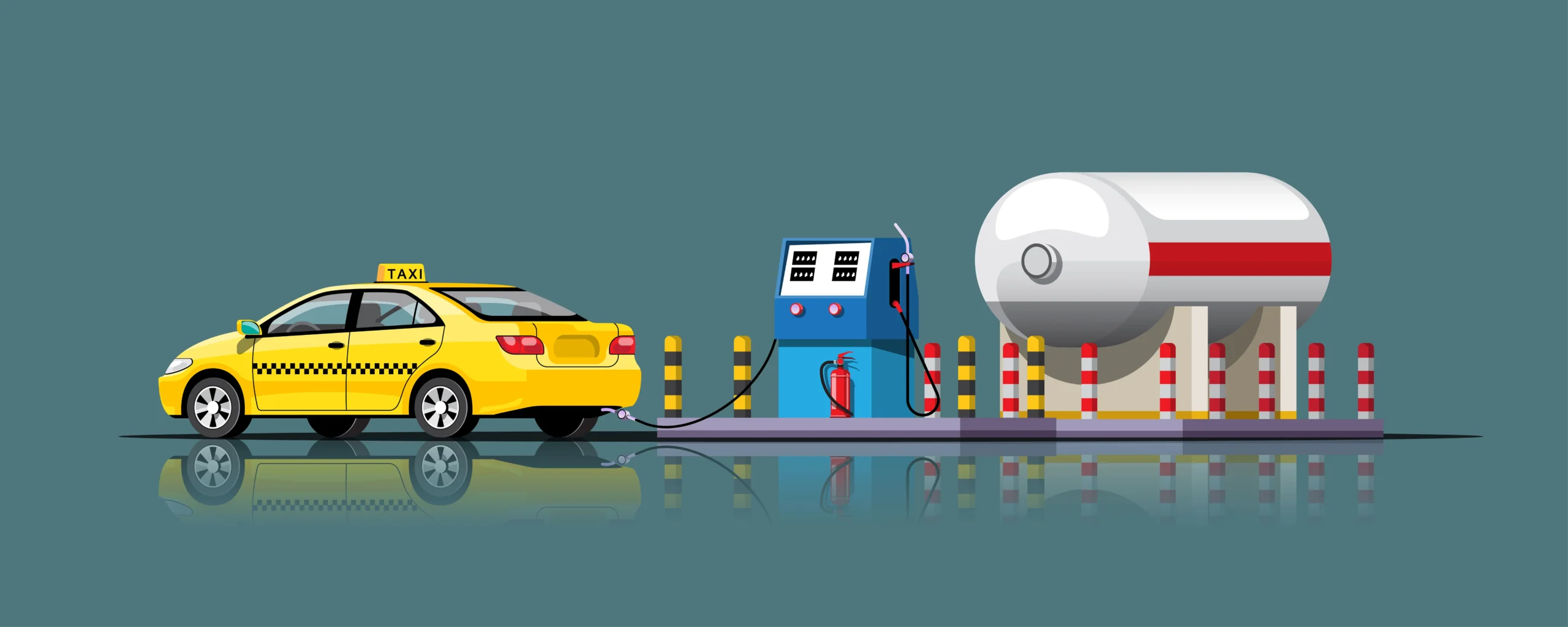Introduction
Diesel and gasoline engines are the two most common types of internal combustion engines used in vehicles worldwide. While both types serve the same basic function—converting fuel into energy to power a vehicle—the way they achieve this is fundamentally different. These differences affect everything from fuel efficiency to performance, maintenance, and environmental impact. This article explores how diesel engines differ from gasoline engines by breaking down their mechanics, advantages, disadvantages, and typical applications.
How Do Diesel and Gasoline Engines Work?
Before diving into the differences, it’s essential to understand how each engine type operates. Both diesel and gasoline engines rely on the same fundamental principles of internal combustion: a mixture of fuel and air is ignited in a chamber to create energy. However, the process of achieving this ignition varies greatly between the two engine types.
Gasoline Engine Operation
A gasoline engine, also known as a spark-ignition engine, uses a spark plug to ignite the fuel-air mixture. The process occurs in the following steps:
- Intake: Air and gasoline are drawn into the combustion chamber.
- Compression: The piston compresses the mixture, making it more volatile.
- Power Stroke: A spark plug ignites the compressed mixture, causing a small explosion that pushes the piston down and generates power.
- Exhaust: The piston moves back up, expelling exhaust gases through the exhaust valve.
Diesel Engine Operation
Diesel engines, on the other hand, are compression-ignition engines. They rely on high compression to ignite the fuel without the need for a spark plug. Here’s how the diesel combustion cycle works:
- Intake: Air is drawn into the combustion chamber.
- Compression: The piston compresses the air to a much higher degree than in a gasoline engine, heating it up significantly.
- Fuel Injection: At the peak of compression, diesel fuel is injected directly into the combustion chamber, where it ignites due to the high temperature.
- Power Stroke: The ignition forces the piston downward, generating power.
- Exhaust: The piston moves back up, expelling the exhaust gases.
Key Differences Between Diesel and Gasoline Engines
Although both engine types use internal combustion to generate power, the methods and characteristics of diesel and gasoline engines differ in several critical ways.
1. Ignition Method
- Gasoline Engines: Use a spark plug to ignite the fuel-air mixture. This spark-based ignition system makes gasoline engines easier to start in cold weather and allows for more refined control over the timing of combustion.
- Diesel Engines: Rely on compression ignition. Diesel engines compress air to such a high degree that the temperature increases enough to ignite the injected diesel fuel. This results in a more efficient combustion process but can make diesel engines harder to start in cold weather due to the reliance on heat for ignition.
2. Compression Ratio
- Gasoline Engines: Typically have a lower compression ratio, usually between 8:1 and 12:1. This lower ratio is necessary to prevent premature ignition (knocking) since gasoline ignites more easily.
- Diesel Engines: Operate with a much higher compression ratio, often between 14:1 and 25:1. The higher compression ratios contribute to better fuel efficiency and greater torque output.
3. Fuel Efficiency
- Gasoline Engines: Generally, gasoline engines are less fuel-efficient compared to diesel engines. This is because gasoline has a lower energy density, and the combustion process in gasoline engines isn’t as efficient.
- Diesel Engines: Diesel engines offer better fuel efficiency due to their higher compression ratios and the fact that diesel fuel contains more energy per gallon than gasoline. This makes diesel engines ideal for long-distance driving and heavy-duty vehicles.
4. Torque and Power Output
- Gasoline Engines: Gasoline engines tend to produce more horsepower and are favored for applications requiring high speed, such as sports cars. However, they usually deliver less torque compared to diesel engines.
- Diesel Engines: Diesel engines produce more torque at lower RPMs, making them better suited for tasks that require heavy pulling or towing. This characteristic is why diesel engines are common in trucks and industrial machinery.
5. Fuel Type and Composition
- Gasoline Engines: Run on refined gasoline, which is lighter and evaporates more easily than diesel. Gasoline also tends to be less expensive than diesel fuel in most markets.
- Diesel Engines: Use diesel fuel, which is denser and less refined than gasoline. Diesel burns more slowly and efficiently, which contributes to the engine’s better fuel economy.
6. Emissions and Environmental Impact
- Gasoline Engines: Gasoline combustion typically produces more carbon monoxide and hydrocarbons than diesel, contributing to air pollution and greenhouse gas emissions.
- Diesel Engines: Diesel engines produce more nitrogen oxides (NOx) and particulates. However, they emit less carbon dioxide (CO2) because of their higher fuel efficiency. Modern diesel engines are often equipped with particulate filters and NOx reduction systems to meet stringent emissions standards.
Advantages and Disadvantages of Diesel Engines
While diesel engines have certain advantages, they also come with drawbacks. Let’s explore both sides.
Advantages of Diesel Engines
- Fuel Efficiency: Diesel engines are more fuel-efficient, offering up to 30% better mileage than gasoline engines. This makes them ideal for long-haul driving.
- Durability: Diesel engines are built to withstand high levels of compression and stress, making them generally more durable and longer-lasting than gasoline engines.
- Torque: Diesel engines produce more torque, which is beneficial for towing and heavy-duty applications.
Disadvantages of Diesel Engines
- Cost: Diesel vehicles tend to be more expensive upfront than gasoline vehicles, and diesel fuel is often more expensive.
- Cold Weather Performance: Diesel engines can be harder to start in cold conditions because they rely on heat from compressed air to ignite the fuel.
- Emissions: Although more fuel-efficient, diesel engines emit more particulate matter and NOx gases, which are harmful to the environment. However, modern technology is addressing these concerns through emission control systems.
Advantages and Disadvantages of Gasoline Engines
Similarly, gasoline engines come with their own set of pros and cons.
Advantages of Gasoline Engines
- Cheaper Vehicles: Gasoline-powered vehicles generally have a lower purchase price compared to diesel-powered ones.
- Better for Short Trips: Gasoline engines perform better in stop-and-go traffic and short trips, where diesel engines might be less efficient.
- Less Noisy: Gasoline engines run more quietly and smoothly than diesel engines, making for a more comfortable driving experience.
Disadvantages of Gasoline Engines
- Fuel Efficiency: Gasoline engines are typically less fuel-efficient, especially for long-distance driving or heavy loads.
- Maintenance: Gasoline engines tend to have a shorter lifespan compared to diesel engines, requiring more frequent maintenance and repairs.
- Lower Torque: Gasoline engines produce less torque, which makes them less suitable for tasks that require heavy towing or hauling.
Typical Applications for Diesel vs. Gasoline Engines
The choice between diesel and gasoline engines often depends on the specific needs and application of the vehicle or machinery.
Diesel Engine Applications
- Trucks and Commercial Vehicles: Diesel engines are widely used in trucks, buses, and other commercial vehicles due to their fuel efficiency and ability to generate high torque.
- Construction and Agricultural Machinery: Heavy-duty machines such as tractors, bulldozers, and excavators use diesel engines for their reliability and durability under heavy loads.
- Long-Haul Transport: Diesel engines are ideal for long-distance driving due to their better fuel economy and durability.
Gasoline Engine Applications
- Passenger Cars: Most passenger cars, especially sedans, hatchbacks, and sports cars, use gasoline engines for their better acceleration and smoother performance.
- Short-Distance Vehicles: Vehicles used primarily for short trips, such as city driving, are typically powered by gasoline engines because they perform better in stop-and-go traffic.
- Recreational Vehicles: Many recreational vehicles (RVs) and smaller personal vehicles, like motorcycles and ATVs, use gasoline engines for their high-speed performance.
Conclusion
Both diesel and gasoline engines have their strengths and weaknesses, and the choice between the two ultimately depends on the specific needs of the driver and the vehicle. Diesel engines offer superior fuel efficiency, greater torque, and longer durability, making them ideal for long-distance travel and heavy-duty applications. On the other hand, gasoline engines provide better performance in terms of speed, a quieter ride, and are often more suited for passenger cars and short-distance driving.
Understanding the fundamental differences between diesel and gasoline engines—such as their ignition methods, fuel types, efficiency, and emissions—can help consumers make informed decisions about the type of engine that best suits their needs.
Keywords: diesel engine, gasoline engine, fuel efficiency, torque, compression ratio, internal combustion, emissions, vehicle engine differences.


